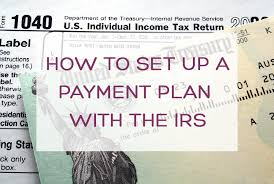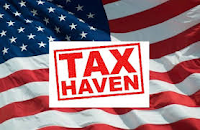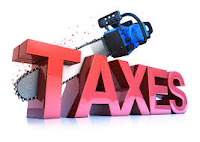On May 14, 2019 we posted Available IRS Payment Plans - Part I, where we discussed that for the 2019 filing season, the IRS projects that more taxpayers than ever will file and owe and that many will be able to pay, but a lot of them will need to make other arrangements because they can’t pay their full tax bills to the IRS. We also discussed that the IRS has three simplified payment plans:
- Guaranteed Installment Agreements (GIA): 36-month payment terms for balances of $10,000 or less.
- Streamlined Installment Agreements (SLIA): 72-month payment terms for balances of $50,000 or less.
- Streamlined Processing for Balances Between $50,000-$100,000: 84-month payment terms for balances between $50,000 and $100,000.
Here we would like to discuss a few other tips related to these simple agreements:
1. Avoid a tax lien – pay down the balance to get into a SLIA. Here’s the best plan for taxpayers who owe more than $50,000: Get an extension to pay of up to 120 days, get funds to pay the balance down to under $50,000, and obtain a SLIA. Doing so will avoid the filing of a tax lien.
2. For SLIA, it’s the “assessed” balance – not the total amount owed. The $50,000 SLIA threshold is based on the taxpayer’s assessed balance – not the total amount they owe. The assessed balance includes tax, assessed penalties and interest, and all other assessments for each tax year. It doesn’t include accrued penalties and interest after the original assessment. For example, if a taxpayer’s original assessment is under $50,000 for an older tax year, he may accrue additional penalties and interest that puts the total balance over $50,000. In this situation, they would still qualify for a SLIA based on the original assessed balance. Taxpayers can also designate payments to reduce their “assessed balance only” to help them qualify for a SLIA.
3. Apply and pay automatically to reduce fees. The IRS increases installment agreement setup fees if taxpayers pay by check. Reduce the setup fee by agreeing to automatic direct debit payments. Automatic payments also avoid a monthly reminder letter from the IRS about the payment due.
4. Pay by direct debit or payroll deduction to avoid default. IRS installment agreements have a high default rate. To avoid a default, taxpayers must make their monthly payments. The best way to avoid missing a payment is to have the payment automatically deducted from the taxpayer’s financial accounts.
5. Don’t owe again. The second most common cause of defaulted installment agreements is filing future tax returns with unpaid balances. Taxpayers need to change their withholding and/or make estimated tax payments to avoid owing taxes that they can’t pay in the future.
6. Taxpayers can miss one payment a year. Most IRS payment plans allow taxpayers to miss one payment per year and not default. It’s best for the taxpayer to notify the IRS in advance if they can’t make a payment.
7. If the taxpayer’s financial situation worsens, get an ability-to-pay plan. Taxpayers can always renegotiate their payment plans if their financial circumstances change. For example, if a taxpayer loses their job, they may not be able to pay the IRS. In these cases, the taxpayer can contact the IRS and provide documentation on their ability to pay. This may mean a lower payment or even payment deferral (called currently not collectible status). Be careful here: If the taxpayer owes more than $10,000 and can’t pay within 72 months, the IRS is likely to file a tax lien.
8. Remember to ask for penalty abatement at the end of the plan. One important action to take at the end of a payment plan is to request abatement of the failure to pay penalty. Taxpayers should consider using first-time abatement or reasonable cause abatement if they qualify.
Each year, more than 3 million taxpayers get into a payment plan with the IRS. With tax reform, we can expect that more taxpayers will need a payment plan in 2019. Taxpayers who owe less than $100,000 should first look at 36-, 72-, or 84-month payment plans with the IRS. Many will also benefit from the help of a qualified tax professional to find the best option.
Sources:
Read more at: Tax Times blog

















